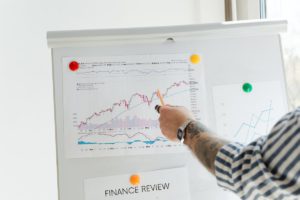In the ever-evolving landscape of financial markets, Contract for Difference (CFD) trading has emerged as a popular and accessible way for investors to engage in various asset classes without owning the underlying assets. CFD trading allows individuals to speculate on price movements of assets such as stocks, commodities, currencies, and indices. At the heart of this dynamic market are CFD brokers, entities facilitating these trades and providing investors with the necessary platform and tools. In this blog post, we’ll explore the fundamentals of CFD trading and shed light on the crucial role played by CFD brokers.
What is CFD Trading?
Before delving into the intricacies of CFD brokers, it’s essential to understand the concept of CFD trading itself. A Contract for Difference is a financial derivative that enables traders to speculate on the price movements of an asset, be it upward or downward, without actually owning the underlying asset. The trader enters into a contract with the broker, and the difference in the asset’s value between the contract’s opening and closing is settled in cash.
One of the key advantages of CFD trading is the ability to trade on margin, allowing investors to control a larger position size with a relatively smaller amount of capital. This leverage amplifies potential profits and losses, making CFD trading a high-risk, high-reward endeavour that requires careful consideration and risk management.
The Role of CFD Brokers
CFD brokers act as intermediaries between traders and the financial markets. These brokers provide online platforms and tools for individuals to execute CFD trades. Choosing the right CFD broker is crucial for traders, as it can significantly impact their overall trading experience and success.
1. Platform Accessibility and Features:
CFD brokers offer trading platforms that vary in features, usability, and accessibility. A user-friendly platform with advanced charting tools, real-time data, and risk management features can greatly enhance a trader’s ability to analyze markets and make informed decisions.
2. Asset Coverage:
Different CFD brokers provide access to different sets of assets. Some may specialize in stocks, while others focus on commodities, indices, or cryptocurrencies. Traders should select a broker that aligns with their preferred asset classes and trading strategies.
3. Leverage and Margin Requirements:
CFD brokers offer varying leverage levels, and traders must know the associated margin requirements and the impact on their risk exposure.
4. Regulation and Security:
Trust is paramount in the financial industry. Reputable CFD brokers are regulated by financial authorities, providing a layer of security for traders. Regulatory compliance ensures brokers adhere to industry standards and treat their clients fairly.
5. Transaction Costs:
CFD brokers make money through spreads and, in some cases, commissions. Traders should compare the fee structures of different brokers to minimize transaction costs and optimize their overall profitability.
Strategies for Successful CFD Trading

1. Risk Management:
Given the inherent volatility in financial markets, effective risk management is crucial for CFD traders. Setting stop-loss orders, diversifying positions, and determining the appropriate position size are essential strategies to protect capital.
2. Technical Analysis:
Traders often rely on technical analysis to identify trends and potential entry and exit points. Chart patterns, trendlines, and technical indicators can provide valuable insights into market movements.
3. Fundamental Analysis:
Understanding the underlying factors influencing asset prices is essential for successful CFD trading. Economic indicators, company financials, and geopolitical events can impact markets and should be considered in a comprehensive trading strategy.
4. Continuous Learning:
Successful CFD traders are committed to continuous learning, staying updated on market trends, economic developments, and evolving trading strategies.
In conclusion, CFD trading offers a flexible and accessible way for individuals to participate in various financial markets. Choosing the right CFD broker and implementing effective trading strategies are crucial to a successful trading journey. By understanding the role of CFD brokers and adopting sound trading practices, investors can navigate the complexities of CFD trading and potentially achieve their financial goals.
